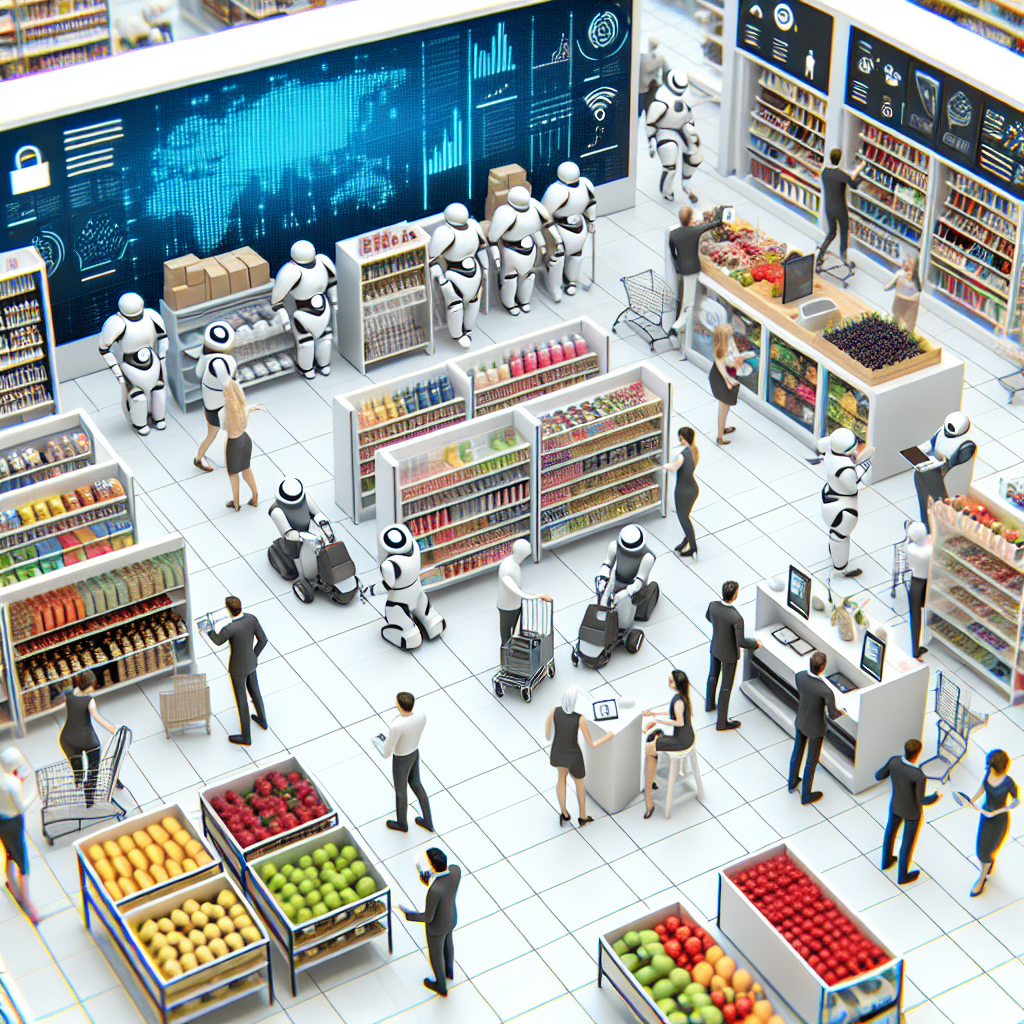The Impact of AI Automation on the Retail Industry
Artificial Intelligence (AI) automation has been revolutionizing various industries, and the retail sector is no exception. From inventory management to customer service, AI automation is transforming the way retailers operate and interact with consumers. In this article, we will explore the impact of AI automation on the retail industry and discuss the benefits and challenges that come with implementing these technologies.
Benefits of AI Automation in Retail
1. Improved Customer Service: AI-powered chatbots and virtual assistants can provide instant responses to customer inquiries, improving the overall shopping experience. These virtual assistants can help customers find products, track orders, and provide personalized recommendations based on their preferences.
2. Enhanced Personalization: AI algorithms can analyze customer data to create personalized recommendations and targeted marketing campaigns. This level of personalization can help retailers increase customer engagement and drive sales.
3. Inventory Management: AI automation can optimize inventory levels by analyzing sales data, demand forecasts, and supply chain information. This can help retailers reduce stockouts, minimize overstocking, and improve overall inventory management efficiency.
4. Fraud Detection: AI algorithms can detect suspicious patterns and behavior to help retailers prevent fraud and protect against unauthorized transactions. This can help retailers save money and protect their reputation.
5. Predictive Analytics: AI automation can analyze historical data to predict future trends and identify opportunities for growth. Retailers can use this information to make informed decisions about pricing, promotions, and product offerings.
Challenges of AI Automation in Retail
1. Implementation Costs: Implementing AI automation in retail can be costly, especially for small businesses. From purchasing AI software to training employees, the upfront costs can be a barrier for some retailers.
2. Data Privacy Concerns: AI automation relies on large amounts of customer data to function effectively. Retailers must ensure that they are following strict data privacy regulations to protect customer information and maintain trust.
3. Job Displacement: As AI automation becomes more prevalent in the retail industry, there is concern about job displacement for human workers. Retailers must find ways to upskill their employees and create new job opportunities to mitigate these concerns.
4. Technical Challenges: AI technologies are still evolving, and retailers may face technical challenges when implementing these technologies. From integration issues to data compatibility, retailers must navigate these obstacles to ensure a successful AI automation implementation.
FAQs
1. How can AI automation improve the customer shopping experience?
AI automation can improve the customer shopping experience by providing instant responses to customer inquiries, personalized recommendations, and efficient order tracking. These technologies can help retailers enhance customer satisfaction and loyalty.
2. What are some examples of AI automation in the retail industry?
Some examples of AI automation in the retail industry include chatbots for customer service, personalized product recommendations, automated inventory management systems, and fraud detection algorithms.
3. How can retailers ensure data privacy when implementing AI automation?
Retailers can ensure data privacy when implementing AI automation by following strict data privacy regulations, encrypting customer data, and implementing secure data storage practices. Retailers must also be transparent with customers about how their data is being used.
4. What are some ways retailers can upskill their employees to adapt to AI automation?
Retailers can upskill their employees by providing training programs on AI technologies, offering opportunities for professional development, and encouraging employees to learn new skills. By investing in their workforce, retailers can help employees adapt to the changing retail landscape.
In conclusion, AI automation is transforming the retail industry by improving customer service, enhancing personalization, optimizing inventory management, and detecting fraud. While there are challenges associated with implementing AI technologies, the benefits far outweigh the drawbacks. Retailers must adapt to the changing landscape of AI automation to stay competitive in the market and provide an exceptional shopping experience for their customers.

